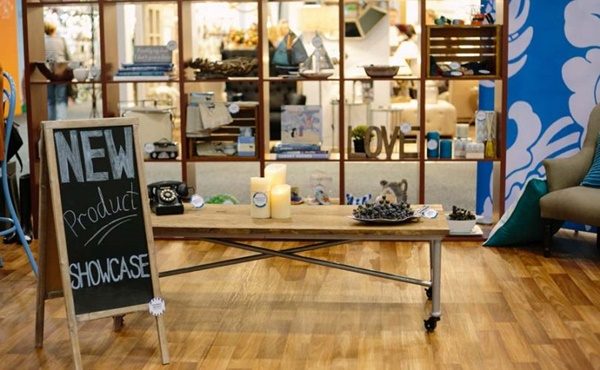As the February trade fairs draw closer, we’ve gathered some top tips from industry insiders to ensure you have a successful show.
Have a plan
According to Opus Design owner Chris Tourgelis, having a plan is key. “My first tip is to be organised,” he says. “I always consider what my stores are lacking in terms of stock selection or brands. I am usually on some sort of mission at trade fairs to improve my product line up and beef up areas that need some attention.”
Leanne Haining, creative director at Urban Rituelle, agrees with this approach. “I can’t emphasise the importance of planning enough,” she says.
“Plan your trade fair days; schedule visits to key suppliers to ensure you don’t miss anyone and also leave plenty of time to discover new and exciting products. Have a list of products you’re searching for and work to a theme for the season, this will help to organise buying decisions. Importantly―always wear comfortable shoes.”
Make time
Allowing enough time to discover new products is also important. “Walk the whole fair. Australian trade fairs are not the same as international fairs which are located by category i.e. jewellery, gifts or kitchenware, so exhibitors are located in many different halls and isles,” explains Craig McCredie, director, Design Mode International.
“It is important for retailers to take the time to walk all the fairs and isles as you never know where you can find that great new brand or product.”
Be strategic
Having a strategy will also help you make good decisions, and avoid getting overwhelmed by all the items on offer. According to The Templar Group founder Debra Templar, you should “spend your first day or half day―depending on length of trade show and your timelines―just looking around.
“Absorb information―who’s selling what and for how much. Yes, you’ll get tired, but keep on walking. Don’t buy anything or stop at any booth yet. Take a few notes about places where you must stop later. See who’s busy.
“Remember that knowledge is power. The biggest asset you can have when you buy merchandise for your store is your knowledge of the marketplace. Knowing what’s available for sale in a category is a valuable negotiating tool. When you can tell vendors the price of their competitor’s merchandise or what products the competition is offering, they’ll stop and listen to you. You become a respected buyer,” she adds.







